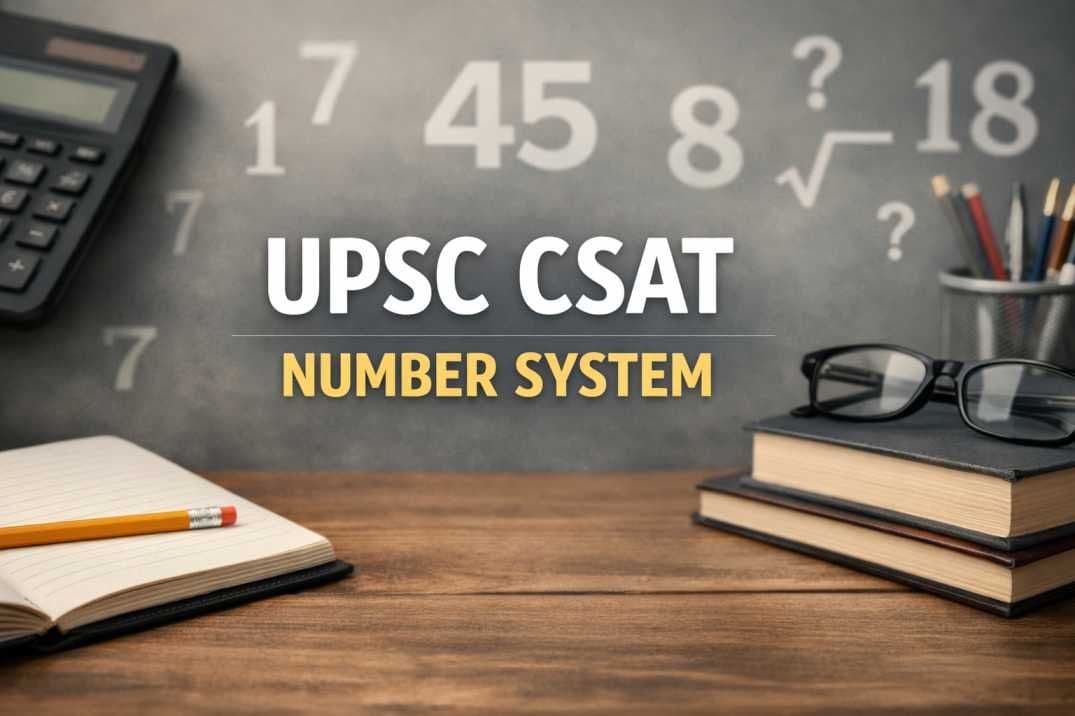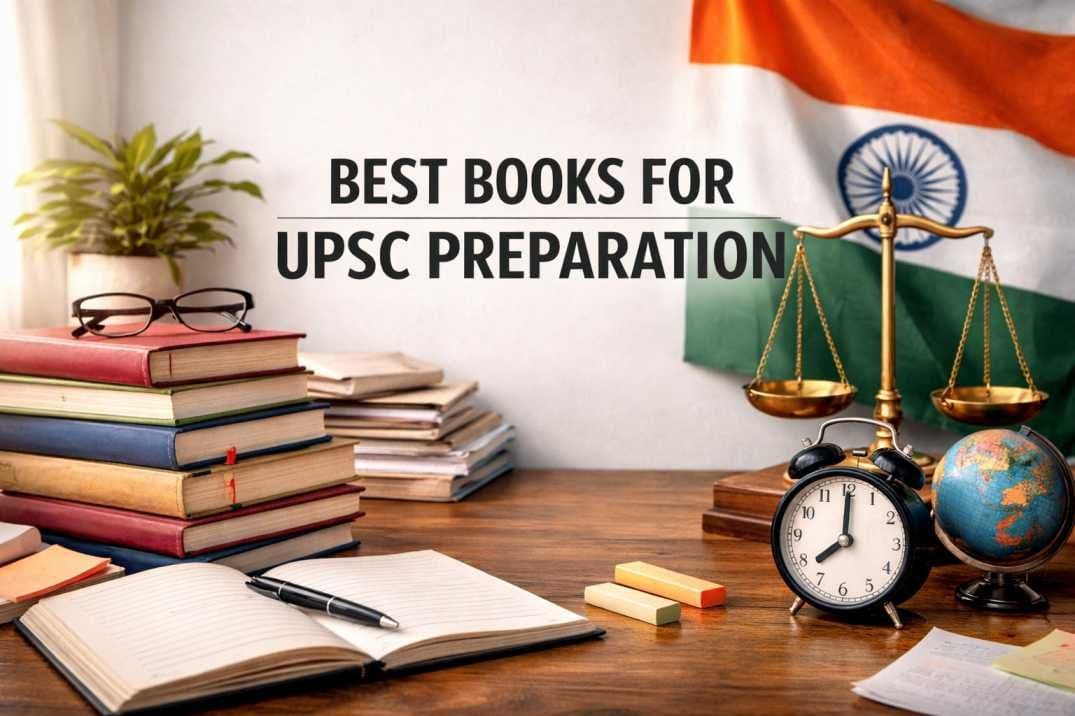Fundamental Rights MCQ for UPSC - Indian Polity and Civics
Mar, 2025
•6 min read
Are you ready to tackle one of the most important topics of Indian Polity for your UPSC preparation? Fundamental Rights, enshrined in Part III of the Constitution, form the backbone of our democracy. They are not just a list of privileges; they represent the very essence of what it means to be a citizen of India. If you're aiming to crack the UPSC Prelims, mastering fundamental right MCQs for UPSC is non-negotiable.
Every year there are questions on Fundamental Rights featured in the UPSC Prelims General Studies Paper I. These questions are not just about recalling facts; they test your understanding of the Constitution’s core principles.
Do you want to feel confident in handling the tricky MCQs on Fundamental Rights that the UPSC might throw your way? In this blog, let’s learn and practice Fundamental Rights MCQs for UPSC to increase your score in Prelims.
What are Fundamental Rights?
"Fundamental Rights are the conscience of the Constitution." – Granville Austin
For UPSC aspirants, Fundamental Rights are more than just a chapter in Indian Polity—they are the very principles that uphold the values of justice, liberty, and equality.
Fundamental Rights are inscribed in Part III of the Indian Constitution, covering Articles 14 to 32. These rights are the pillars of our democracy. These articles define rights that range from the right to equality before the law to the right to constitutional remedies, empowering citizens to stand up against injustices.
But why are these rights so crucial?
- Fundamental Rights foster an environment where every citizen can thrive, enabling them to contribute meaningfully to society.
- They are not merely legal safeguards; they are essential for the intellectual, moral, and spiritual development of individuals.
- They protect our physical freedom and our ability to think, express, and grow as individuals.
- Understanding these rights will help you answer MCQs in Prelims and give you a deeper insight into the workings of our nation.
List of Fundamental Rights in the Indian Constitution
Fundamental Rights are at the heart of the Indian Constitution. To effectively tackle fundamental rights MCQs for UPSC, you need a clear understanding of these rights, their applications, and their implications. Each right is designed to protect specific aspects of personal and collective freedom.
Here's a quick overview to help you grasp the Fundamental Rights enshrined in the Constitution:
|
Rights |
Articles |
Description |
|
Right to Equality |
Articles 14-18 |
|
|
Right to Freedom |
Articles 19-22 |
|
|
Right Against Exploitation |
Articles 23 & 24 |
|
|
Right to Freedom of Religion |
Articles 25-28 |
|
|
Cultural and Educational Rights |
Articles 29-30 |
|
|
Right to Constitutional Remedies |
Article 32 |
Direct enforcement of Fundamental Rights by law Declared as ‘the heart and soul of the Constitution’ by B. R. Ambedkar |
Master COMPLETE Fundamental Rights in 1 Video| UPSC Prelims| Indian Polity | SuperKalam
Fundamental Rights MCQs for UPSC
Having explored the Fundamental Rights and their significance, it’s clear that these rights form the foundation of our legal and democratic structure. To excel in the Prelims, leveraging MCQs can be a powerful strategy. MCQs challenge you to apply your knowledge and understand the details of Fundamental Rights.
Now, let's dive into some practical examples to test your grasp of the justiciability of Fundamental Rights:
Practice MCQs on Fundamental Rights




By practicing Fundamental Rights MCQs for UPSC, you’ll be well-equipped to tackle related questions efficiently and effectively, ultimately boosting your exam performance.
Previous Year's MCQs on Fundamental Rights
Now that you’ve familiarized yourself with the essential Fundamental Rights and their implications, it's time to dive into a critical component of your UPSC preparation—Previous Year's Questions (PYQs). PYQs are not just practice tools; they’re your blueprint to understanding the exam’s pattern, level of difficulty, and frequently asked questions.
Why are PYQs Your Best Bet for Success?
- Predict the Trend
- Exam Pattern Familiarity
- Time-Tested Strategy
- Learning from Mistakes
Let’s look at various examples of Previous Year’s Questions on Fundamental Rights in UPSC Prelims:
- In 2019, the UPSC Prelims included a question that tested aspirants' understanding of the Fundamental Rights related to personal freedom and choice:

- Here's another example of a question from the 2017 UPSC Prelims that tests your knowledge of Fundamental Rights, specifically focusing on the 'Right against Exploitation':

Remember, every question you practice from previous years brings you one step closer to your goal. So, don't just study; strategize with PYQs and make them a core part of your preparation toolkit.
Also watch: DIRECT Questions in Prelims 2024 from SuperKalam's Mindmaps and Tests | With PROOF!
5 Tips for Effective Use of MCQs in Your Preparation
Mastering Multiple Choice Questions (MCQs) is crucial for acing the UPSC Prelims. MCQs not only test your knowledge but also your ability to apply concepts in a timed setting. Effective practice with MCQs can significantly boost your confidence and improve your score. Here are five comprehensive tips to help you make the most of MCQs in your UPSC preparation:
- Understand the Concept Behind Each Question
Don't just focus on getting the correct answer; delve into the underlying concept. Understand why a particular option is correct and why others are not. This helps reinforce your understanding of key topics and prepares you for any twists in future questions.
Also watch: SuperKalam solves Prelims 2024 Answer Key | UPSC Prelims
- Regular Practice with Timed Sessions
Simulate exam conditions by practicing MCQs within a set time limit. This not only enhances your speed but also helps you manage time effectively during the actual exam. Regular timed practice makes you more comfortable with the pressure of answering within a limited timeframe.
Also watch: Practice Daily Prelims Questions (DPQs) on Current Affairs every day with SuperKalam for FREE!
- Analyze Your Mistakes
After attempting an MCQ set, review the questions you got wrong or were unsure about. Analyze why you made those mistakes—was it due to lack of knowledge, misinterpretation, or haste? Learning from your errors is crucial for continuous improvement.
- Practice Elimination Techniques
When faced with tricky MCQs, use the process of elimination to narrow down your options. Even if you’re unsure of the correct answer, eliminating incorrect choices increases your chances of selecting the right one. This technique is especially useful in questions where more than one option appears correct.
- Revise Regularly
Consistent revision is key to retaining information. As you practice more MCQs, keep revisiting the topics and questions you’ve previously covered. This ensures that the concepts remain fresh in your mind and reduces the chances of forgetting crucial information during the exam.
- Stay Focused, Stay Positive, and Keep Moving Forward
Staying on track and managing your time effectively are key to success in the UPSC exam. Remember, setbacks are just stepping stones – learn from them and keep pushing forward. Most importantly, find joy in the learning journey.
By integrating these tips into your preparation strategy, you’ll enhance your ability to tackle MCQs effectively, ultimately boosting your chances of success in the UPSC Prelims.
Master Polity with confidence! Learn how to deal with Indian Polity for UPSC Prelims & Mains: Ideal way to study Polity| UPSC CSE.
Conclusion
MCQs on Fundamental Rights are a significant part of the UPSC Prelims, testing both your conceptual knowledge and your ability to apply it in real-world scenarios. Regular practice with fundamental rights MCQs for UPSC will enhance your ability to answer questions accurately and confidently. As you prepare, remember that mastering these MCQs is not just about memorizing articles but about grasping the broader implications of these rights in our society and governance.
Also, supercharge your UPSC prep with SuperKalam’s Prelims Test Series. Get ready for the ultimate challenge with:
- Rigorous full-length tests across GS and CSAT
- Answer keys and detailed explanations
- Practice with questions mirroring UPSC's format and difficulty.
- Gain insights from toppers and improve with detailed explanations.
As Benjamin Franklin said, "An investment in knowledge always pays the best interest.
"Start preparing for your UPSC journey today. Your future will be bright!


